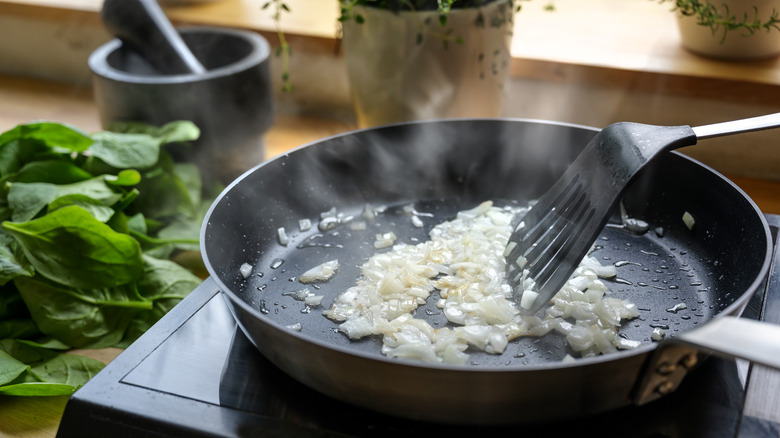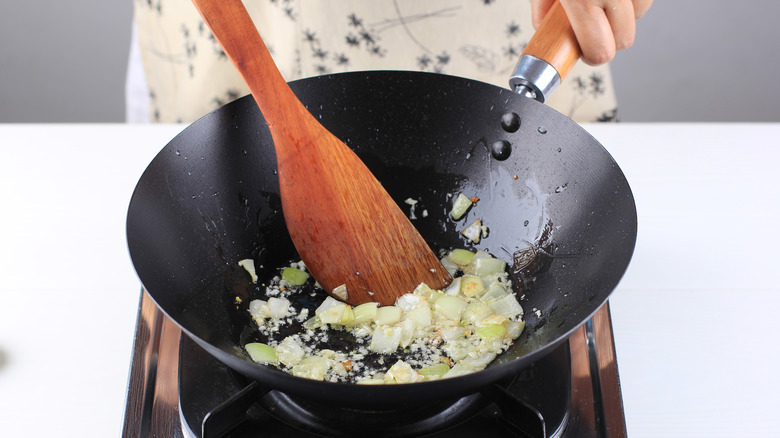Why Adding Salt Is So Important When Cooking Onions
Out of all the staple ingredients we try to keep in the pantry, onions are definitely at the top of the list, along with garlic, fresh lemons, good-quality salt, and black peppercorns. This earthy root vegetable brings its irreplaceable allium flavor to a huge variety of dishes, often forming a flavorful base for soups and stews as well as taking a more starring role in condiments such as pickled onions and onion jam.
o many ways to cut an onion, and, of course, different techniques for cooking them. But a great majority of recipes start with cooking an onion in the same way: chopped or diced, and then sweated in some fat such as olive oil before proceeding with next steps. Doing so creates a base of soft, flavorful onions that meshes easily with other ingredients — and you may have noticed that "sweating" an onion involves adding salt to it.
Adding salt to onions draws out their moisture and softens them
How often have you "sweated" an onion in your cooking life? This predominant cooking technique refers to cooking onion in some fat over low or medium heat, causing it to soften and release some of its moisture (via The Spruce Eats). A common step in soups and stews before adding other ingredients, sweating an onion almost always involves adding some salt to it as it's cooking. If you haven't been adding salt to your onions as they cook in this way, you'll want to start.
According to The Splendid Table, adding salt to onions immediately after placing them in a hot pan to sauté is an indispensable step. The outlet notes that this is what draws the moisture out of the onions through osmosis. As they release their liquid, the onions will cook a bit faster and take on a softer texture that will combine well with the other ingredients in your recipe. The onions will also have more flavor from being seasoned, of course, and The Splendid Table notes that if your eventual aim is to brown the onions, salting will speed that process up.

